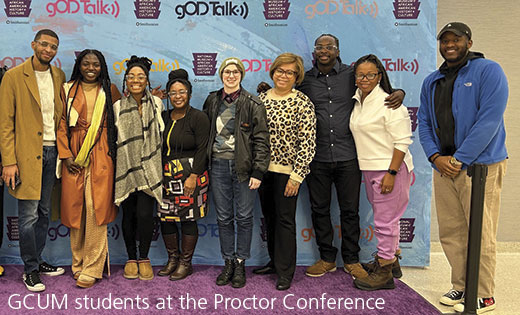About Metro-Urban Institute
About the Metro-Urban Institute
Founded in 1991, the Metro-Urban Institute combines the theory and practice of collaborative community ministry into a program of urban theological education that prepares students for excellence in any context of ministry, but with particular attention to public realities affecting the urban environment.
MUI is an academic, advocacy, and programmatic action arm of Pittsburgh Theological Seminary, concerned with factors that shape contemporary urban life and Christian ministry within urban contexts. MUI’s activities have two primary emphases:
- facilitation of experiential, curricular, and scholarly engagement with urban poverty contexts and concerns, especially engagement by theological students and educators; and
- analysis, mapping, and reinforcement of the socio-religious resources of churches, community organizations, social networks, and leadership sectors within low-income neighborhoods.
MUI is part of the PTS Neighborhood Collaborative.
Mission Statement and Purpose
 The Metro-Urban Institute at Pittsburgh Theological Seminary has served faith communities by balancing scholarship and grassroots practices to inform, resource, and link religious partners in the work of healthy justice-centered community formation and flourishing in urban contexts.
The Metro-Urban Institute at Pittsburgh Theological Seminary has served faith communities by balancing scholarship and grassroots practices to inform, resource, and link religious partners in the work of healthy justice-centered community formation and flourishing in urban contexts.
Historically MUI has served as a trusted partner in the Pittsburgh community, especially around issues of race, health, and other justice concerns. Building on this historic legacy, today we continue working to equip people (with or without master's degrees – utilizing our Graduate Certificate in Urban Ministry program) for ministries familiar and yet to unfold.
As a part of our goal of equipping ministries and faith-based organizations, we offer workshops, seminars, symposiums, and conferences that benefit our MUI/GCUM students along with others from the PTS community and broader society. Where possible, we partner with other departments within the Seminary (e.g., our two-part Grants workshop, biennial MUI conference, etc.) to expand impact and reach.
Initiatives
MUI's instructional, research, and community engagement activities include:
- Contextualized Learning and Instruction
- Graduate Certificate in Urban Ministry: a flexible year-long program allowing community members and seminarians to explore their Christian vocation in urban settings
- International Education Experiences
- Annual Conferences, Panel Discussions, Symposia, and Special Events
- Participatory Action Research
- Research on Neighborhood Capital
- Community Partnerships and Policy Advocacy
- Urban Community Partners
- Conversations on Race
International Educational Experiences
Given the realities of today's global marketplace and multicultural cities, awareness of the cross-cultural challenges of urban life is essential for effective local city ministry. The Metro-Urban Institute's International Education program exposes students to urban ministry and theological education in cultures outside of the U.S., typically in non-Western societies. Students, faculty, and community members have enjoyed studying with practitioners and educators throughout the transatlantic region. Cross-cultural education is generally offered as a summer intensive course due to the inclusion of foreign travel.
